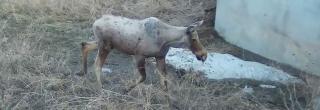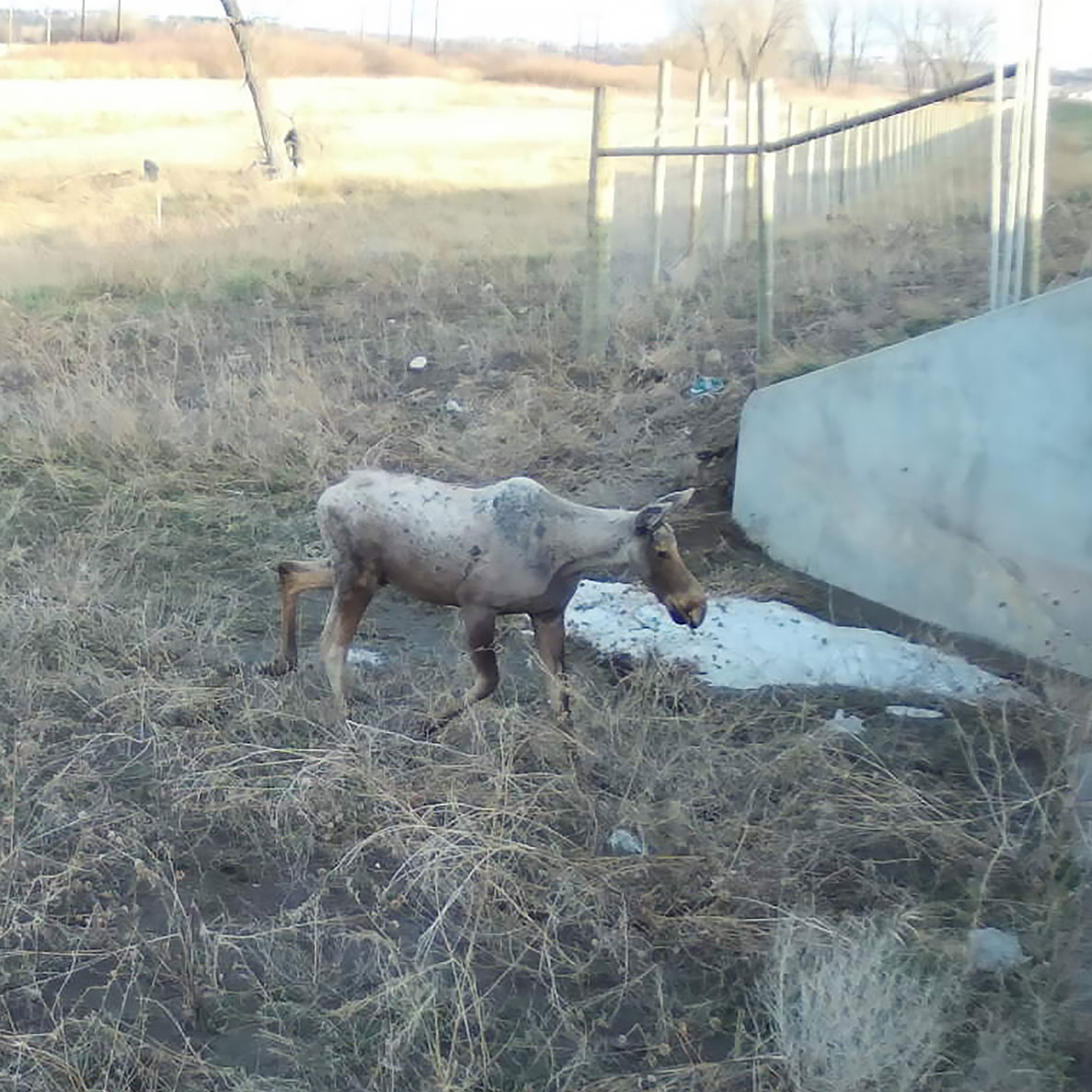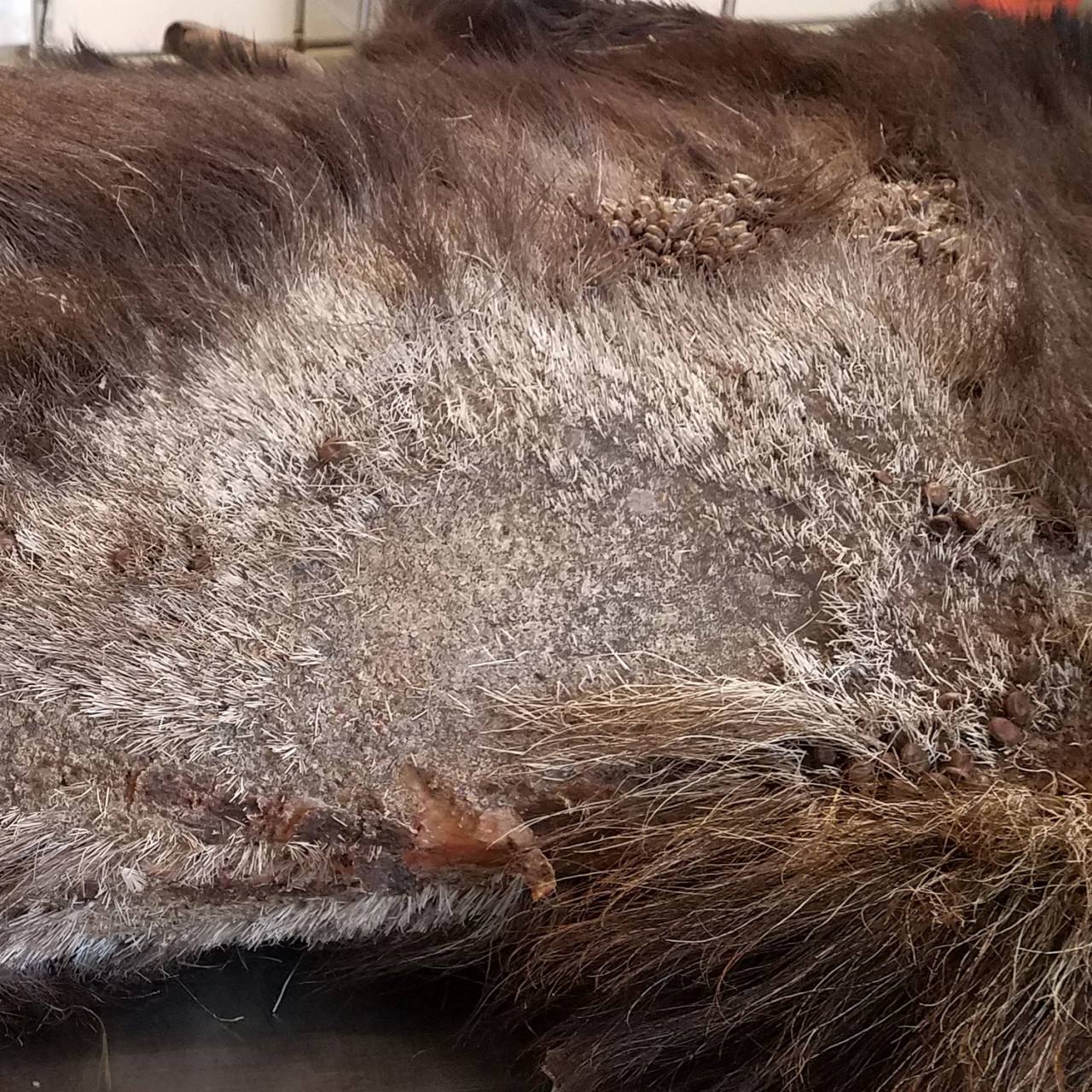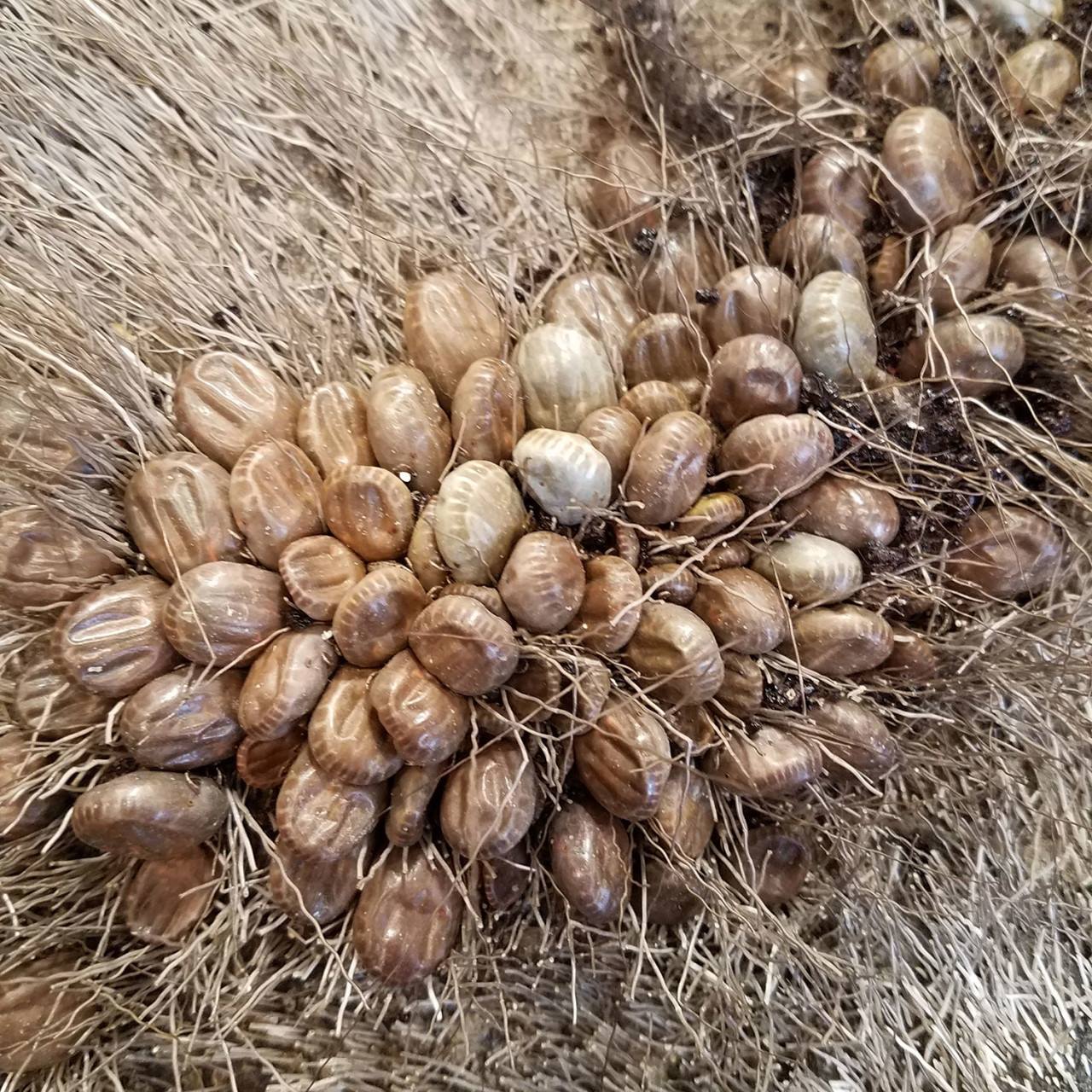
Winter Ticks and Moose
Ghost Moose - Stories about ghost moose are being told with increased frequency across the southern portion of moose range in North America. These are not supernatural moose, but moose that appear grey in color due to the loss of hair and their sickly appearance. In some instances, they appear like something right out of “The Walking Dead”.
Unlike other ticks, the winter tick has just one host, the moose. Winter ticks latch on to moose in the fall, spend the winter feeding on the moose, and fall off in early spring; usually April. If the ticks fall off on to snow, they die. If the engorged female tick falls on to snow-free ground, they can lay up to 3,000 eggs in the leaf litter.
In August and September, the eggs hatch and the larval ticks climb up the vegetation to about shoulder height of a moose and wait for a moose to brush up against them. These clumps of ticks can number from just a few to more than a thousand.
Evolutionarily speaking it is not “wise” for a parasite to kill its host, and a moose can easily handle a small number of ticks. But when there are a series of mild winters and the ground is not covered by snow in the spring winter tick numbers can boom, and the resulting infestation rates on moose can be astronomical.
A series of mild winters can result in what biologist euphemistically call “good tick years”. Under these conditions winter ticks can number between 75,000 to 150,000 on a single moose! At infestation rates this high moose will rub the hair off much of their body trying to rid themselves of these blood thirsty pests. The result is not only a moose with a ghostly appearance, regional die-offs of moose can also occur. So, it’s no wonder that moose are always itching for a snowy winter and a late spring.




